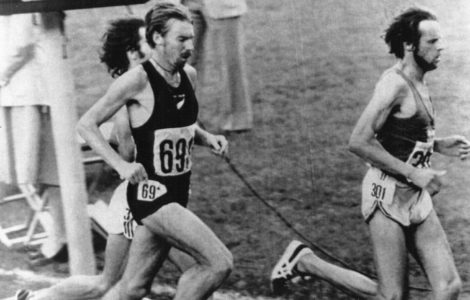 Dick Quax was a straight talking character whose Dutch stubborness and determination in the 1970s led New Zealand distance runners back to the glory days of Murray Halberg and Peter Snell a decade earlier.
Dick Quax was a straight talking character whose Dutch stubborness and determination in the 1970s led New Zealand distance runners back to the glory days of Murray Halberg and Peter Snell a decade earlier.
Coming to this country with his parents as a six-year-old, Quax developed into a brave, stylish runner who claimed a silver medal at the 1970 Edinburgh Commonwealth Games 1500m behind 1968 Mexico City Olympic champion Kip Keino.
He was the only one with the courage to go with the great Kenyan’s searing pace and at one stage actually led him.
An outspoken individual who berated his fellow Kiwis for sitting on pacemakers like himself rather than attempt to reach international standards, Quax was the pathfinder who set Rod Dixon and John Walker on the road to glory,
Not that he gave them an easy ride.
On one occasion upon fending Dixon off in a Wanganui mile, he retorted to Dixon’s protest by telling he needed to get used to it if he wanted to became a true international.
“You are just a boy,” he scoffed.
That boy went on to claim an Olympic bronze medal at the 1972 Munich Olympics behind Finland’s Pekka Vasala and Keino and narrowly missed another bronze at the 1976 Montreal Olympics when Quax claimed silver behind Lasse Viren’s repeat gold.
That was also the Olympics in which Walker followed history’s first sub 3 minute 50 seconds mile of 3m 39.4s in 1975 with gold in the 1500m in the wake of Jack Lovelock (Berlin 1939) and Peter Snell (Tokyo 1964).
Like Dixon, an emerging Walker was not spared Quax’s anger when, during an argument in 1973 he told him, “You won’t make a runner’s arsehole.”
Yet that same year it was Quax who used his influence with European and British promoters to give Walker entry to the European circuit.
Such was Walker’s progress that he and winner Filbert Bayi broke Jim Ryun’s world 1500m record at the 1974 Christchurch Commonwealth Games.”
Unfortunately, injury prevented Quax from competing after he had dominated the European circuit over 5000m the previous year.
Although there had been some early disagreements, the three middle distance musketeers of New Zealand athletes became firm friends.
Like 1983 New York winner Dixon, Quax stepped up to the marathon with such success than he set a world mark on making his debut.
Later he became a coach and a Manukau and Auckland councillor.







